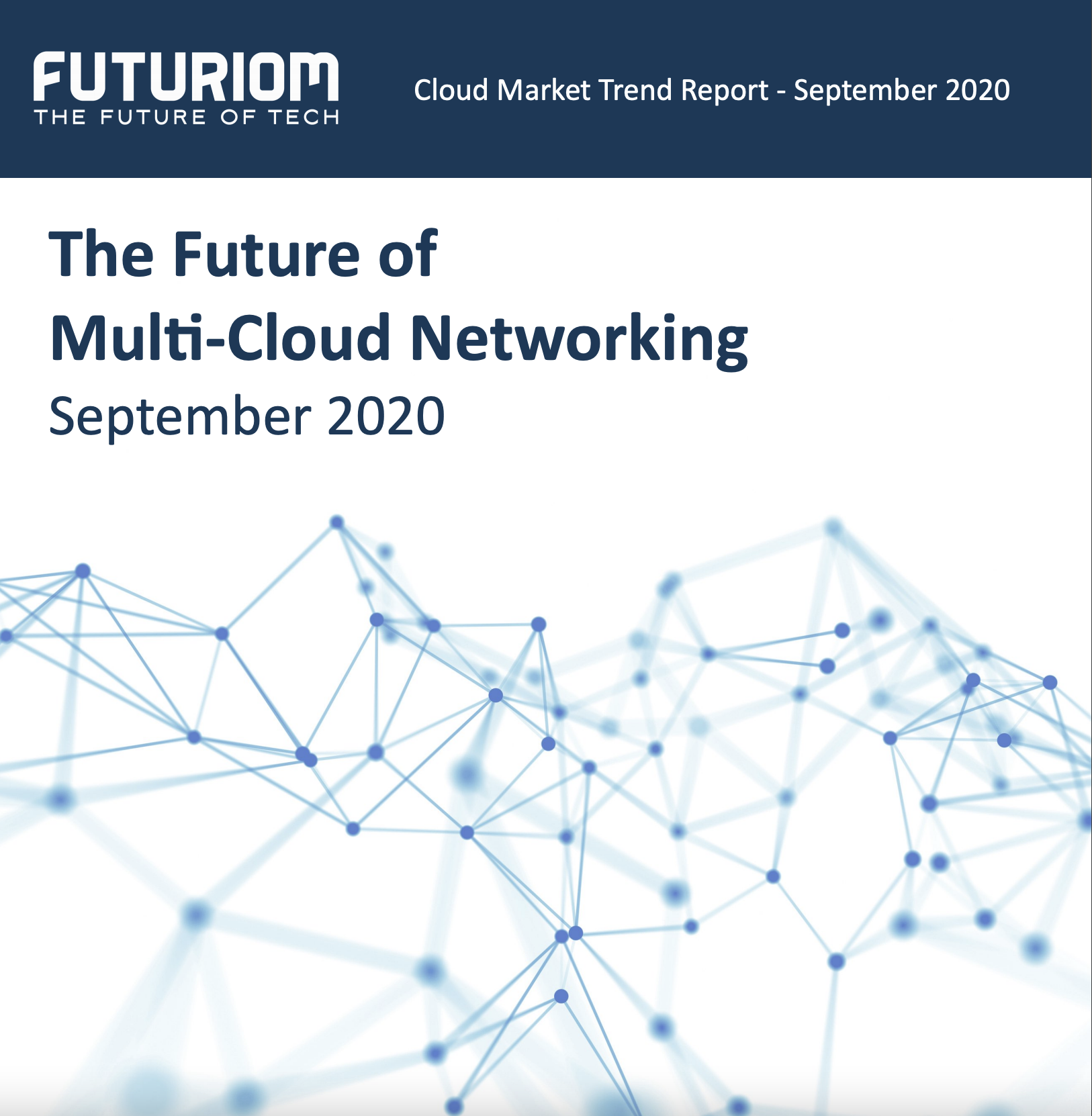
The Future of Multi-Cloud Networking
A Market Trend Report by Futuriom
“As people need more things [from the cloud], we have become more of a multi-cloud environment. From a simplicity perspective we don’t want to do things four times. We want to do it once. Simplicity of operations is key.” ~ Bobby Willoughby, Network Architect with Aegon.
Futuriom discusses the coming multi-cloud networking boom, why multiple clouds will become key to IT strategy and how it all means big changes for networking. Receive expert insights from this comprehensive report and learn:
‘The Great Cloud Wave’ – the shift of IT applications to multiple and hybrid clouds – is creating demand for a new multi-cloud networking (MCN) solutions than can unify networking infrastructure among cloud constructs. Enterprise IT, Network, and Security managers want a unified networking infrastructure that can connect with multiple cloud and integrate with their existing networking and IT investment. Futuriom collected this feedback from a survey of 150 enterprise end users with technology roles, qualified as Director-level and above.
The key drivers of MCN include providing more options for multi-cloud and hybrid cloud (69%), consolidating data center with public cloud infrastructure (69%), improving the performance of distributed applications (65%), and managing security policy and visibility (61%), according to Futuriom survey work. MCN solutions will be used to create software-defined virtual networks that can integrate private data center, public cloud, and enterprise networks. This will drive the uptake of Network as a Service (NaaS), software-defined networking (SDN), and Application Programming Interfaces (APIs) to connect and integrate existing networks and cloud platforms.

Top use cases of multi-cloud networking
According to end-user survey feedback
Include:
- security integration and virtual firewall management;
- multi-cloud application integration and performance assurance;
- network visibility, security analytics, and
- unified multi-cloud network monitoring and management.
Download the report by filling in your information down below!